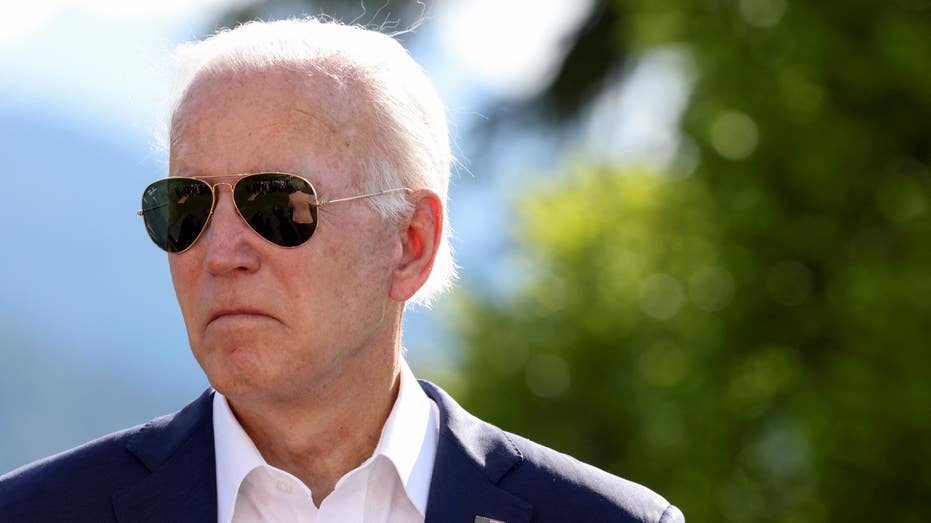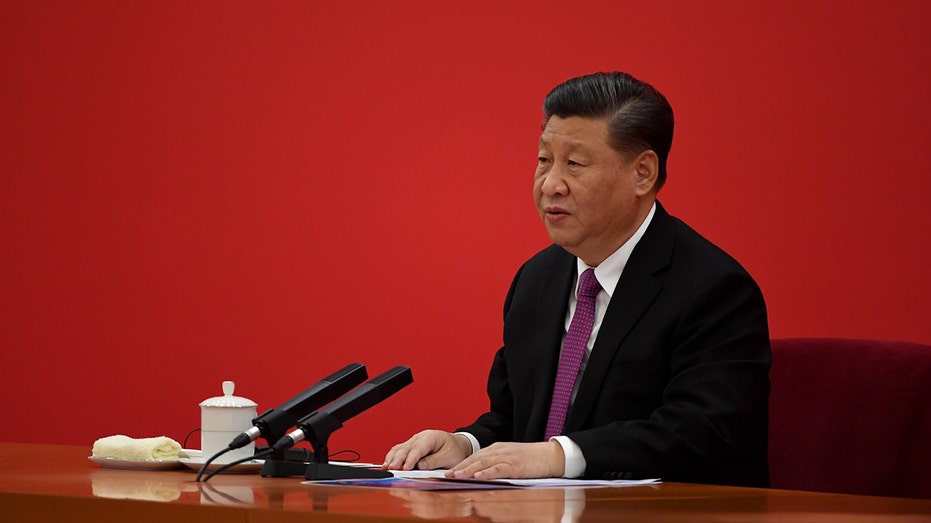US pledges $200B to G7 infrastructure project to counter China’s Belt and Road Initiative
The West alleges that China's Belt and Road Initiative traps countries in debt
The United States is pledging $200 billion to a G7 infrastructure project intended to counter’s China’s multi trillion-dollar Belt and Road Initiative.
The "Partnership for Global Infrastructure and Investment" was relaunched by President Biden and other Group of Seven leaders on Sunday at their annual gathering being held this year at Schloss Elmau in Southern Germany.

U.S. President Joe Biden attends the first day of the G7 leaders' summit at Bavaria's Schloss Elmau castle, near Garmisch-Partenkirchen, Germany, June 26, 2022. (REUTERS/Lukas Barth/Pool / Reuters Photos)
Altogether the G7 leaders pledged to raise $600 billion in private and public funds over five years to finance needed infrastructure in developing countries.
The U.S.’ $200 billion portion will come from grants, federal funds, and private investment over that time period to support projects are intended to tackle climate change, improve global health, gender equity and digital infrastructure.
GERMANY STEPS UP MEASURES TO CONSERVE GAS AS RUSSIA SLOWS SUPPLY TO EUROPE
Biden went at lengths to insist the money was not "aid or charity."
"It’s an investment that will deliver returns for everyone," he said, adding that it will allow countries to "see the concrete benefits of partnering with democracies."
He suggested that additional funds – upwards of hundreds of billions – could come from multilateral development banks, development finance institutions and sovereign wealth funds.
Chinese President Xi Jinping launched China’s Belt and Road Initiative scheme in 2013. The nearly ten-year multi trillion-dollar effort involves development and infrastructure programs in more than 100 countries aimed at creating a modern version of the ancient Silk Road trade route from Asia to Europe.
Western officials have long argued that the initiative traps receiving countries in debt with investments that benefit China more than the hosts.
The G-7 program responds to China's so-called Belt and Road Initiative, which Western officials have long argued traps receiving countries in debt and with investments that benefit China more than their hosts.

Chinese President Xi Jinping speaks with Russian President Vladimir Putin via a video link, from the Great Hall of the People on December 2, 2019, in Beijing, China. (Noel Celis - Pool/Getty Images / Getty Images)
The White House says the initiative seeks to leverage $200 billion in U.S. investment over the next five years, along with a similar amount from G-7 allies, to boost infrastructure development in lower- and middle-income nations.
It adds that most of the funding will come from the private sector, sovereign wealth and global development funds, rather that direct taxpayer dollars.
The U.S. says the G-7 backed effort promotes responsible investments that aim to benefit the communities they are made in.
Among the first initiatives are a $2 billion solar farm investment in Angola in Southwest AFrica, $320 million for hospital construction in Ivory Coast, in West Africa, and $40 million to promote regional energy trade in Southeast Asia.
CLICK HERE TO GET THE FOX BUSINESS APP
In a jab at China, European Commission President Ursula von der Leyen said the G-7 is offering "sustainable, quality infrastructure" and will be "listening closely to the recipient countries."
The Associated Press contributed to this report.
